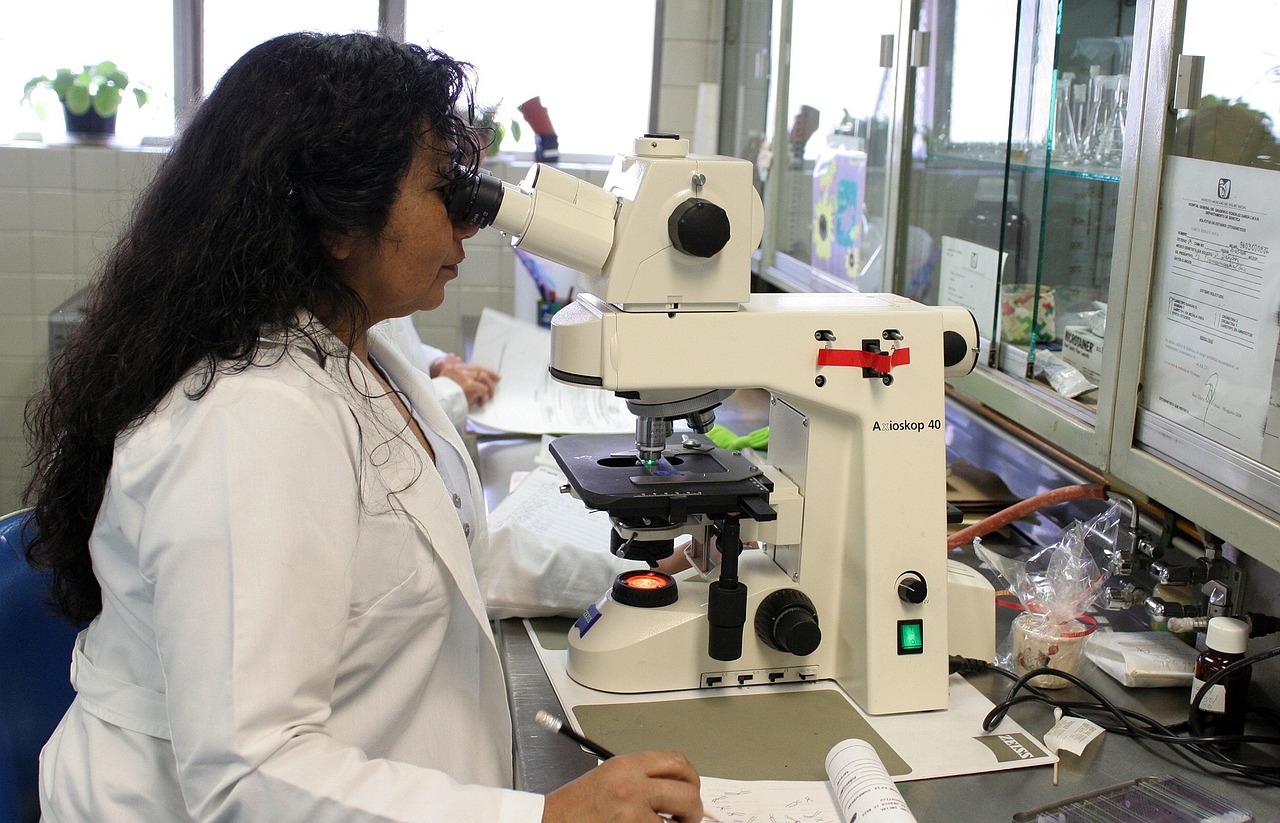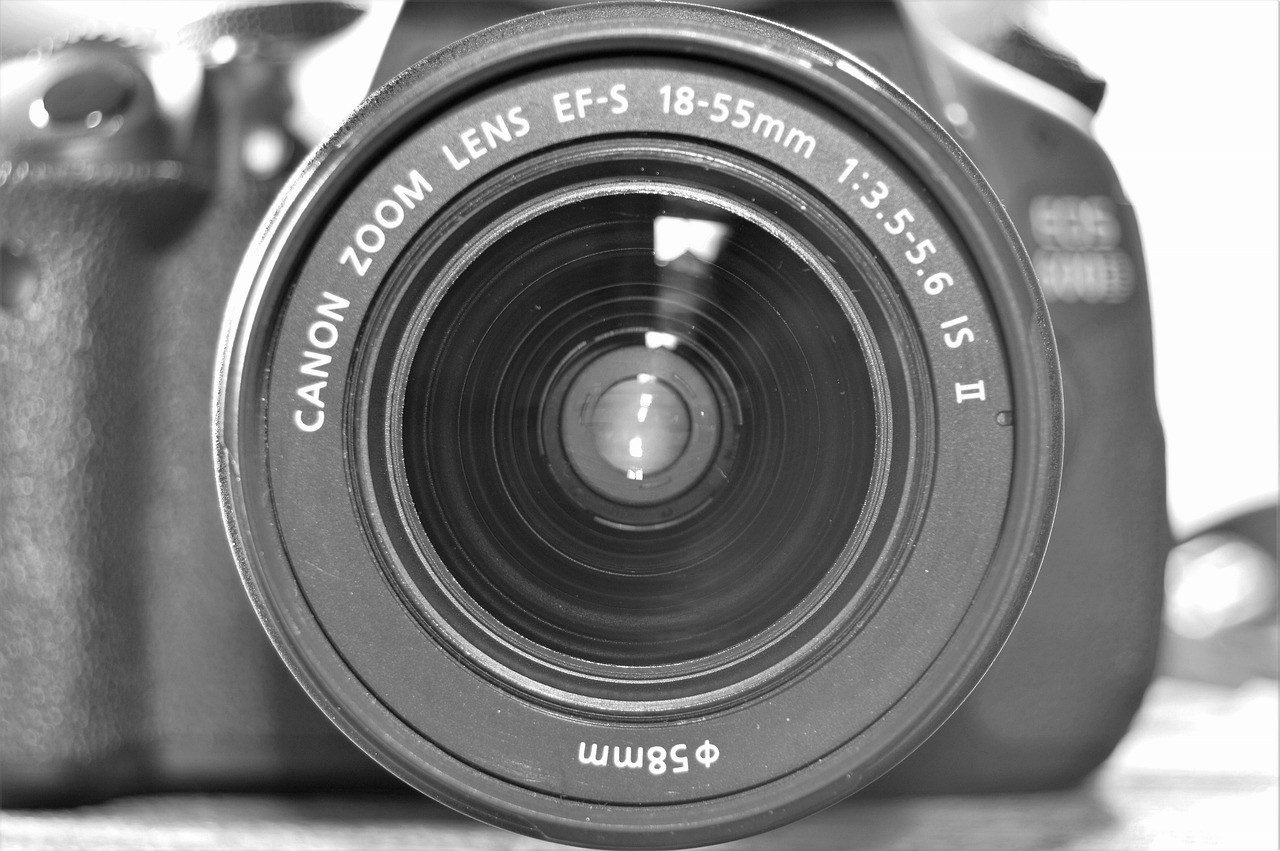Objectivity vs Subjectivity - A Philosophical Inquiry into Scientific Methods
In the vast landscape of scientific inquiry, the concepts of objectivity and subjectivity serve as two opposing forces that shape our understanding of the world. Imagine standing at a crossroads—one path leads to a realm where facts reign supreme, free from personal biases, while the other beckons with the rich tapestry of human experience and interpretation. This article invites you to explore these fundamental differences, not merely as abstract concepts, but as vital components that influence our pursuit of knowledge, research methodologies, and philosophical discourse.
At its core, objectivity is about striving for a perspective that is as unbiased and neutral as possible. It represents the ideal of seeing things as they truly are, without the distortion of personal feelings or preconceived notions. This pursuit of objectivity is crucial in scientific methods, where the goal is to establish facts that can be universally accepted and replicated. Think of it as trying to capture a photograph of a beautiful landscape—if you let your personal preferences influence the shot, you might end up with an image that reflects your taste rather than the true beauty of the scene. In science, this means that researchers must work diligently to set aside their biases to allow the data to speak for itself.
On the flip side, subjectivity is the lens through which personal experiences, emotions, and interpretations color our understanding of reality. It acknowledges that each individual brings their unique background, beliefs, and feelings to the table, which inevitably shapes their perceptions. For instance, consider a scientist studying climate change. Their interpretation of data may be influenced by their own experiences with extreme weather events, leading them to emphasize certain findings over others. While this subjectivity can introduce bias, it can also provide valuable insights that purely objective approaches might overlook. The interplay between these two perspectives creates a rich dialogue that fuels scientific advancement.
To truly grasp the essence of objectivity, we must delve deeper into its definition and significance. Objectivity is not merely a goal but a practice that requires rigorous methodology and adherence to ethical standards. It serves as the bedrock of scientific inquiry, enabling researchers to make claims based on evidence rather than personal opinion. The importance of objectivity cannot be overstated; it fosters trust in scientific findings and allows for the replication of experiments, which is essential for validating results.
Subjectivity plays a pivotal role in shaping our understanding of research. It invites us to consider how our backgrounds and experiences influence our interpretations. For example, in qualitative research, the subjective insights of the researcher can lead to a deeper understanding of complex social phenomena. However, this also raises questions about the reliability of findings. Can we trust results that are influenced by personal perspectives? This tension between objectivity and subjectivity is a critical aspect of scientific discourse, prompting ongoing debates about the validity of knowledge.
The evolution of objectivity is a fascinating journey through time, marked by significant philosophical movements and influential thinkers. From the early days of empirical observation to the rigorous methodologies of the Scientific Revolution, the quest for objectivity has been a driving force in shaping modern science.
The Scientific Revolution, a period spanning the 16th to 18th centuries, marked a transformative shift towards objective methodologies. Think of it as the dawn of a new era where observation and experimentation took precedence over speculation and dogma. This era laid the groundwork for modern scientific practices, emphasizing the importance of unbiased inquiry in the pursuit of knowledge.
However, the quest for absolute objectivity has not gone unchallenged. Postmodern thinkers argue that the very notion of objective truth is problematic, suggesting that all knowledge is influenced by cultural and historical contexts. This critique invites us to reconsider the implications of objectivity in contemporary scientific discourse. Are our scientific findings truly objective, or are they shaped by the lenses through which we view the world?
Subjectivity is not merely a nuisance to be eliminated; it is an integral part of scientific research. Researchers' backgrounds, beliefs, and experiences inevitably influence their findings. This section explores how subjectivity can enrich scientific inquiry by providing diverse perspectives that lead to more comprehensive understandings.
Finding a balance between objectivity and subjectivity is crucial in research. It is not about choosing one over the other but rather integrating both perspectives to enhance our understanding of complex phenomena. This balance allows researchers to draw on the strengths of both approaches, leading to richer, more nuanced findings.
One effective way to achieve this balance is through mixed methods research, which combines qualitative and quantitative techniques. By employing both approaches, researchers can gain a more comprehensive view of their subjects. For instance, a study on educational outcomes might include statistical analyses of test scores alongside interviews with students and teachers, providing a fuller picture of the educational experience.
Ethics play a vital role in navigating the complexities of objectivity and subjectivity. Researchers must grapple with the ethical implications of bias in their work, recognizing their responsibility to maintain integrity in their findings. This includes being transparent about their methodologies and acknowledging the potential influence of personal perspectives on their research.
- What is the difference between objectivity and subjectivity?
Objectivity refers to the practice of perceiving and interpreting phenomena without personal biases, while subjectivity encompasses personal perspectives that influence understanding. - Why is objectivity important in scientific research?
Objectivity fosters trust in scientific findings and allows for the replication of experiments, which is essential for validating results. - Can subjectivity be beneficial in research?
Yes, subjectivity can provide valuable insights that purely objective approaches might overlook, enriching our understanding of complex phenomena.

The Nature of Objectivity
Objectivity is a cornerstone of scientific inquiry, representing the ideal of perceiving and interpreting phenomena without the interference of personal biases. Imagine trying to look at a painting while wearing tinted glasses; your view is skewed by the color of the lenses. In a similar way, our biases can distort our understanding of the world. Objectivity strives to remove those 'lenses' so that we can see things as they truly are, or at least as close to that as possible. This pursuit is crucial because it allows scientists to develop knowledge that is replicable, verifiable, and universally accepted.
The importance of objectivity in science cannot be overstated. It serves as a guiding principle that shapes research methodologies and influences the way findings are interpreted. When researchers adhere to objective practices, they contribute to a body of knowledge that is not only credible but also serves as a foundation for further inquiry. This credibility is essential in a world where misinformation can spread like wildfire, making it imperative for scientists to present data and conclusions that can withstand scrutiny.
However, achieving true objectivity is often more challenging than it seems. Human beings are inherently subjective creatures, influenced by emotions, experiences, and cultural backgrounds. This natural inclination raises the question: can anyone ever be completely objective? While the goal is to minimize personal biases, the reality is that researchers bring their own perspectives into their work. This interplay between objectivity and subjectivity is where things get interesting.
To better understand the nature of objectivity, let's break it down into a few key components:
- Definition: Objectivity is the practice of observing and interpreting phenomena based on observable evidence rather than personal feelings or opinions.
- Importance: It ensures that scientific findings are reliable and can be replicated by other researchers, which is vital for the advancement of knowledge.
- Influence on Inquiry: Objectivity shapes the design of experiments, the collection of data, and the interpretation of results, fostering a culture of integrity in research.
In conclusion, while the quest for objectivity is noble and essential, it is equally important to acknowledge the inherent subjectivity that comes with being human. Striking a balance between these two perspectives can lead to richer, more nuanced understandings of scientific phenomena. As we delve deeper into the philosophical implications of objectivity and subjectivity, we begin to appreciate the complexities that define our pursuit of knowledge.
- What is objectivity in scientific research? Objectivity in scientific research refers to the practice of interpreting data and phenomena without personal biases, ensuring that findings are based on observable evidence.
- Why is objectivity important? Objectivity is crucial because it lends credibility to scientific findings, allowing them to be replicated and verified by others, thus contributing to a reliable body of knowledge.
- Can researchers be completely objective? While researchers strive for objectivity, complete objectivity is difficult to achieve due to inherent human biases and perspectives.

The Role of Subjectivity
Subjectivity is a fascinating aspect of human experience that plays a crucial role in how we interpret the world around us. Unlike objectivity, which strives for a detached and unbiased perspective, subjectivity embraces the unique lens through which each individual views reality. This lens is shaped by a myriad of factors, including personal experiences, cultural background, beliefs, and emotions. In the realm of scientific research, understanding the role of subjectivity is essential, as it can significantly influence the outcomes and interpretations of studies.
One might wonder, how can personal perspectives impact scientific findings? It's simple: our backgrounds and experiences color our interpretations of data and phenomena. For instance, a scientist studying climate change may approach their research with different motivations based on their upbringing or personal beliefs. If one researcher has experienced the devastating effects of natural disasters firsthand, their urgency to address climate issues may drive them to focus on certain aspects of the data that others might overlook. This is where subjectivity becomes both a strength and a potential pitfall in scientific inquiry.
Moreover, subjectivity can manifest in various forms throughout the research process. From the questions we choose to ask, to the methods we employ, and even how we analyze our results, personal biases can subtly weave their way into our work. Acknowledging this influence is vital for researchers who aim to present their findings as objective and reliable. In fact, many contemporary studies emphasize the importance of reflexivity—where researchers critically examine their own biases and how these may affect their research. This practice not only enhances the credibility of the research but also enriches the scientific dialogue.
In addition, subjectivity can foster creativity and innovation within scientific fields. When researchers bring their unique perspectives to the table, they can challenge established norms and propose new hypotheses that may not have been considered otherwise. This diversity of thought is crucial for scientific progress, as it encourages collaboration and the exploration of ideas from multiple angles. However, it's important to strike a balance; while subjectivity can lead to breakthroughs, it can also cloud judgment if left unchecked.
To illustrate the interplay between objectivity and subjectivity, consider the following table that highlights key differences between the two approaches:
| Aspect | Objectivity | Subjectivity |
|---|---|---|
| Definition | Perception without bias | Personal interpretation and experience |
| Influence on Research | Aims for neutrality | Shapes questions and interpretations |
| Outcome | Standardized findings | Diverse insights and perspectives |
| Examples | Controlled experiments | Case studies, qualitative research |
In conclusion, while objectivity remains a cornerstone of scientific inquiry, subjectivity is equally important. It reminds us that science is not just a collection of data points, but a human endeavor that thrives on diverse perspectives. By recognizing and integrating subjectivity into research practices, scientists can enhance their understanding and contribute to a richer, more nuanced body of knowledge.
- What is the difference between objectivity and subjectivity? Objectivity refers to viewing phenomena without personal bias, while subjectivity involves personal perspectives that influence understanding.
- How does subjectivity impact scientific research? Subjectivity can shape research questions, methods, and interpretations, potentially leading to innovative insights or bias.
- Can subjectivity be beneficial in scientific inquiry? Yes, it can foster creativity and challenge established norms, contributing to scientific progress.

Historical Perspectives on Objectivity
The concept of objectivity has undergone a profound transformation throughout history, shaped by various philosophical movements and thinkers. In the early days of human thought, objectivity was often intertwined with the metaphysical and theological perspectives of the time. Philosophers like Aristotle laid the groundwork for a systematic approach to knowledge, promoting the idea that observing the natural world could lead to universal truths. However, it wasn't until the Scientific Revolution in the 16th and 17th centuries that objectivity began to take on a more defined role in scientific inquiry.
During this pivotal era, figures such as Galileo Galilei and Isaac Newton championed methods that emphasized empirical observation and experimentation over reliance on ancient texts and dogma. Their work marked a significant shift in the pursuit of knowledge, as they introduced the notion that objective observations could lead to reproducible results, independent of the observer's beliefs or biases. This was a radical departure from previous methodologies, which often prioritized subjective interpretations.
As the Enlightenment progressed, the emphasis on reason and individualism further solidified the importance of objectivity in philosophical discourse. Thinkers like Immanuel Kant argued for the necessity of a critical approach to knowledge, where individuals must strive to separate their perceptions from the phenomena they observe. This notion laid the groundwork for the modern understanding of objectivity, where the goal is to attain knowledge that is as free from personal bias as possible.
However, the journey toward a fully objective methodology has not been without its challenges. In the late 19th and early 20th centuries, the rise of postmodernism began to question the very foundations of objectivity. Thinkers such as Michel Foucault and Jacques Derrida argued that what we consider "objective" is often influenced by cultural, social, and historical contexts. They posited that knowledge is not merely a reflection of reality but is constructed through discourse and power dynamics. This critique has significant implications for contemporary scientific discourse, as it invites researchers to reconsider the assumptions underlying their methodologies.
In summary, the historical perspectives on objectivity reveal a complex evolution shaped by significant philosophical movements. From the early empirical approaches of the Scientific Revolution to the critical perspectives of postmodernism, the journey toward understanding objectivity is ongoing. As we delve deeper into the nature of knowledge, it becomes clear that while objectivity aims for unbiased understanding, it is continually influenced by the subjective experiences of individuals and the societal frameworks in which they operate.
- What is the main difference between objectivity and subjectivity?
Objectivity refers to perceiving and interpreting phenomena without personal biases, while subjectivity encompasses personal perspectives that influence understanding.
- How has the Scientific Revolution impacted our understanding of objectivity?
The Scientific Revolution emphasized empirical observation and experimentation, laying the groundwork for modern scientific practices that prioritize objectivity.
- What role do postmodern critiques play in contemporary discussions of objectivity?
Postmodern critiques challenge the notion of absolute objectivity, suggesting that knowledge is influenced by cultural and social contexts.

Scientific Revolution and Objectivity
The Scientific Revolution, spanning from the late 16th century to the 18th century, was not just a period of remarkable discoveries; it was a profound transformation in the way humanity approached knowledge. This era marked a significant shift towards objective methodologies, where observation and experimentation began to take precedence over traditional beliefs and dogmas. Before this revolution, knowledge was often derived from ancient texts and philosophical speculation. However, thinkers like Galileo Galilei and Isaac Newton championed a new way of thinking—one that emphasized empirical evidence and rationality.
During this time, the scientific method emerged as a systematic approach to inquiry, laying the groundwork for modern science. This method involves several key steps:
- Observation
- Hypothesis formulation
- Experimentation
- Data analysis
- Conclusion
The impact of the Scientific Revolution on objectivity cannot be overstated. It redefined how knowledge was validated and disseminated. For instance, the shift from a geocentric to a heliocentric model of the universe challenged long-held beliefs and required a rigorous examination of evidence. This movement towards objectivity was not merely about discovering new facts; it was about establishing a methodological rigor that demanded consistency and reproducibility in scientific findings.
Moreover, the implications of this newfound objectivity extended beyond the realm of science. It influenced philosophy, politics, and even art, encouraging a culture that valued evidence over opinion. As a result, the Scientific Revolution laid the foundation for the Enlightenment, a period that celebrated reason, skepticism, and the pursuit of knowledge. This philosophical shift paved the way for a more critical examination of both the natural world and human society, emphasizing that knowledge should be based on observable phenomena rather than subjective beliefs.
However, it’s essential to recognize that the journey towards objectivity was not without its challenges. As scientists began to embrace this new paradigm, they also faced the reality that complete objectivity might be an elusive goal. The very act of observation can introduce biases, and the interpretation of data can be influenced by the researchers' backgrounds and beliefs. This inherent tension between seeking objectivity and acknowledging subjectivity continues to shape scientific discourse today.
In conclusion, the Scientific Revolution was a pivotal moment in the history of knowledge, marking a significant shift towards objective methodologies. It established a framework that continues to guide scientific inquiry, emphasizing the importance of empirical evidence and rational thought. Yet, as we celebrate the advancements made during this period, it is crucial to maintain a dialogue about the balance between objectivity and subjectivity in the ongoing quest for understanding.
What was the main impact of the Scientific Revolution on objectivity?
The Scientific Revolution shifted the focus from traditional beliefs to empirical evidence, establishing methodologies that prioritized objective observation and experimentation.
Who were the key figures in the Scientific Revolution?
Key figures include Galileo Galilei, Isaac Newton, and Francis Bacon, who contributed significantly to the development of the scientific method and the promotion of objective inquiry.
Is complete objectivity achievable in scientific research?
While the goal of objectivity is to minimize biases, complete objectivity may be unattainable due to the influence of researchers' backgrounds and interpretations on their findings.
How did the Scientific Revolution influence other fields?
The principles of objectivity established during the Scientific Revolution influenced not only science but also philosophy, politics, and the arts, promoting a culture that values evidence over opinion.

Postmodern Critiques of Objectivity
In the landscape of philosophy, the postmodern critique of objectivity emerges as a powerful and thought-provoking challenge to traditional scientific paradigms. Postmodern thinkers argue that the quest for absolute objectivity is not only elusive but may also be fundamentally misguided. They suggest that our understanding of reality is inherently shaped by cultural, social, and historical contexts, which means that what we consider "objective" knowledge is often colored by subjective interpretations.
One of the key figures in this discourse is Michel Foucault, who emphasized the relationship between knowledge and power. According to Foucault, knowledge is not merely a reflection of reality; rather, it is constructed through discourses that are influenced by power dynamics. This perspective implies that scientific knowledge, often perceived as the pinnacle of objectivity, is actually a product of specific historical and cultural conditions. Thus, the postmodern critique raises important questions about the legitimacy of scientific claims to objectivity.
Another prominent thinker, Jacques Derrida, introduced the concept of deconstruction, which challenges the idea that texts and theories can convey absolute truths. Derrida's approach encourages us to look beyond the surface meaning of scientific texts and to question the underlying assumptions that shape our understanding. This perspective urges researchers to acknowledge their own biases and the limitations of their interpretations, fostering a more nuanced view of scientific inquiry.
Moreover, postmodern critiques highlight the role of language in shaping our perceptions of reality. Language is not a neutral vehicle for conveying objective truths; instead, it is a dynamic system that influences how we construct knowledge. The implications of this insight are profound: if language shapes our understanding, then the pursuit of objectivity must also consider the ways in which language can distort or limit our comprehension of the world.
Critics of the postmodern stance argue that dismissing objectivity altogether can lead to relativism, where any interpretation is seen as equally valid, potentially undermining the credibility of scientific research. However, proponents of postmodernism advocate for a more balanced approach, where researchers acknowledge their biases while striving for rigor and transparency in their methodologies. They argue that embracing subjectivity does not negate the value of objectivity; rather, it enriches our understanding by incorporating diverse perspectives.
In summary, the postmodern critique of objectivity invites us to reconsider the foundations of scientific knowledge. It challenges us to recognize the complexities of interpretation and the influence of context, urging a more reflective and responsible approach to research. As we navigate this philosophical terrain, it becomes increasingly clear that the interplay between objectivity and subjectivity is not a binary opposition but a rich tapestry that informs our understanding of the world.
- What is the main argument of postmodern critiques of objectivity?
Postmodern critiques argue that objectivity is influenced by cultural, social, and historical contexts, making absolute objectivity an unattainable ideal. - How do Foucault and Derrida contribute to this discussion?
Foucault emphasizes the relationship between knowledge and power, while Derrida's deconstruction challenges the idea that texts can convey absolute truths. - Can objectivity and subjectivity coexist in scientific research?
Yes, many argue that recognizing subjectivity can enhance the rigor and transparency of research while still striving for objective methodologies.

Subjectivity in Scientific Research
When we dive into the realm of scientific research, it's easy to think of it as a purely objective endeavor, driven by cold, hard facts and data. However, the reality is far more nuanced. Subjectivity plays a crucial role in shaping research outcomes, often in ways that are subtle yet profoundly impactful. At its core, subjectivity refers to the influence of personal perspectives, experiences, and biases on the interpretation of data and phenomena. This means that two researchers can look at the same set of data and arrive at completely different conclusions based on their individual backgrounds and beliefs.
Consider the example of a medical researcher investigating a new treatment for a disease. Their previous experiences, cultural background, and even personal beliefs about health can shape how they design their study, interpret results, and report findings. This is not to say that the research is flawed, but rather that it is colored by the researcher’s lens. In this way, subjectivity can both enrich and complicate the research process.
Furthermore, the implications of subjectivity extend beyond individual researchers. The broader scientific community often has prevailing theories and paradigms that can influence how research is conducted and interpreted. For instance, if a certain theory is widely accepted, researchers may unconsciously design their studies to support it, leading to a phenomenon known as confirmation bias. This bias can skew results, as researchers may overlook data that contradicts their expectations.
To illustrate this point, let's take a look at a hypothetical study on climate change. If a researcher holds a strong belief in human-driven climate change, they might emphasize data that supports this view while downplaying or dismissing data that suggests alternative explanations. This selective interpretation can lead to a skewed understanding of the issue, potentially affecting policy decisions and public opinion.
In acknowledging the role of subjectivity, it's essential to consider methodologies that can help mitigate its impact. For instance, employing peer review processes allows for diverse perspectives to be considered, which can help balance individual biases. Additionally, transparency in research methods and data reporting can enable others to scrutinize and replicate studies, thereby enhancing the credibility of findings.
Ultimately, embracing subjectivity in scientific research doesn't diminish the validity of findings; rather, it enriches our understanding of complex phenomena. By recognizing the interplay between objectivity and subjectivity, researchers can strive for a more holistic approach to knowledge creation. This balance is crucial, as it allows for a deeper exploration of the human experience within the scientific framework.
As we navigate the intricate landscape of scientific inquiry, it’s vital to remain aware of our biases and the subjective lenses through which we view our work. After all, science is not just about uncovering facts; it’s about understanding the world through a multifaceted lens that includes both objective data and subjective interpretation.
- What is the difference between objectivity and subjectivity in research?
Objectivity refers to the practice of observing and interpreting data without personal biases, while subjectivity involves personal perspectives that can influence understanding and interpretation. - How does subjectivity affect scientific findings?
Subjectivity can lead to different interpretations of the same data, potentially introducing biases that affect research outcomes and conclusions. - Can subjectivity be minimized in scientific research?
Yes, methodologies such as peer review, transparency in reporting, and mixed methods approaches can help mitigate the impact of subjectivity.

Balancing Objectivity and Subjectivity
In the world of research, the interplay between objectivity and subjectivity is not just a philosophical debate; it’s a practical necessity. Achieving a balance between these two perspectives can significantly enhance our understanding of complex phenomena. Imagine trying to solve a puzzle where some pieces are shaped by personal experiences and others by hard facts. The challenge lies in fitting them together to create a coherent picture. Striking this balance is crucial for researchers who aim to produce credible and comprehensive findings.
One of the key aspects of balancing objectivity and subjectivity involves recognizing that while objective data is invaluable, it does not exist in a vacuum. Researchers bring their own backgrounds, beliefs, and experiences to the table, which can influence how they interpret data. This is where subjectivity plays a vital role. It offers insights that raw data alone cannot provide. For instance, a scientist studying the effects of climate change may rely on objective measurements of temperature changes, but their understanding of the implications for local communities can be deeply subjective, informed by their personal experiences and values.
To effectively balance these elements, researchers often employ mixed methods approaches. This strategy combines both qualitative and quantitative research techniques, allowing for a more rounded perspective. For example, a study on public health might include statistical analysis of disease prevalence (objective) and interviews with affected individuals (subjective). By integrating these methods, researchers can develop a richer understanding of the issues at hand.
Moreover, ethical considerations play a pivotal role in navigating the terrain between objectivity and subjectivity. Researchers have a responsibility to be aware of their biases and to strive for transparency in their methodologies. This means acknowledging how personal perspectives might shape their interpretations and findings. In doing so, they can enhance the integrity of their research, making it more trustworthy and valuable to the scientific community.
In summary, the balance between objectivity and subjectivity is essential for robust research. By embracing both perspectives, researchers can not only produce more comprehensive findings but also contribute to a deeper understanding of the complexities of human experience and the natural world. This integration is not just an academic exercise; it’s a vital approach that can lead to meaningful change and advancements in knowledge.
- What is the difference between objectivity and subjectivity?
Objectivity refers to perceiving and interpreting phenomena without personal biases, while subjectivity involves personal perspectives that can influence understanding. - Why is it important to balance objectivity and subjectivity in research?
Balancing both allows researchers to produce more comprehensive findings and understand complex issues better. - How can mixed methods improve research outcomes?
Mixed methods combine qualitative and quantitative techniques, providing a more holistic view of the research topic. - What ethical considerations should researchers keep in mind?
Researchers should be aware of their biases, strive for transparency, and maintain integrity in their methodologies.

Mixed Methods Approaches
When we think about research, the first thing that usually comes to mind is the idea of gathering data in a strict, linear fashion. However, the world we live in is anything but linear. That's where come into play, offering a more holistic view of complex phenomena. This methodology combines both qualitative and quantitative techniques, allowing researchers to explore a subject from multiple angles. Imagine trying to understand a painting solely by measuring its dimensions; you might miss the emotions and stories it tells. Similarly, relying on just one method can lead to a skewed understanding of research questions.
One of the most compelling aspects of mixed methods research is its ability to provide a richer context for findings. By integrating qualitative insights—like personal interviews or focus groups—with quantitative data, such as surveys or statistical analyses, researchers can create a more comprehensive narrative. This approach not only enhances the depth of understanding but also allows for the triangulation of data. In other words, it helps validate findings by cross-referencing results from different methods. For instance, a study on educational outcomes might use test scores (quantitative) alongside student interviews (qualitative) to understand the underlying factors affecting performance.
Moreover, mixed methods can be particularly beneficial in fields where human behavior plays a significant role, such as education, psychology, and social sciences. By acknowledging the subjective experiences of individuals while still grounding findings in objective data, researchers can bridge the gap between numbers and narratives. This dual approach not only enriches the data but also makes it more relatable and applicable to real-world scenarios.
However, implementing mixed methods isn't without its challenges. Researchers must possess a strong grasp of both qualitative and quantitative techniques, which can be daunting. They also need to carefully design their studies to ensure that both types of data work in harmony rather than conflict. This requires a thoughtful approach to research questions, sampling, and data collection methods.
To illustrate the effectiveness of mixed methods, consider the following table that outlines some key benefits:
| Benefit | Description |
|---|---|
| Comprehensive Understanding | Combining qualitative and quantitative data provides a fuller picture of the research topic. |
| Data Triangulation | Validates findings by cross-referencing different data sources. |
| Enhanced Credibility | Increases the trustworthiness of research results through diverse methodologies. |
| Flexibility | Allows researchers to adapt their methods as new insights emerge during the study. |
In conclusion, mixed methods approaches represent a significant evolution in research methodologies. By embracing both objectivity and subjectivity, researchers can uncover deeper truths and offer richer insights into complex issues. As the landscape of research continues to evolve, so too will the methods we use to understand the world around us. Embracing this duality not only enhances the quality of research but also fosters a more nuanced understanding of human experiences.
- What are mixed methods approaches? Mixed methods approaches combine qualitative and quantitative research techniques to provide a more comprehensive understanding of a research topic.
- Why are mixed methods important? They allow researchers to validate findings through different data sources and offer richer insights into complex issues.
- What challenges do researchers face with mixed methods? Researchers must have a strong grasp of both qualitative and quantitative methods and ensure that their study design allows for effective integration of data.

Ethical Considerations
When we dive into the intricate world of scientific research, one crucial aspect that often gets overshadowed by the quest for knowledge is ethics. It’s not just about what we discover, but how we conduct our research that matters. Ethical considerations act as a compass, guiding researchers through the murky waters of objectivity and subjectivity. So, why is this so important? Because the integrity of scientific inquiry hinges on the ability to navigate biases, conflicts of interest, and the potential impact of findings on society.
Imagine a researcher who is deeply passionate about a specific outcome. Their enthusiasm could inadvertently color their interpretation of data, leading to findings that may not be entirely accurate. This is where the ethical responsibility of scientists comes into play. They must strive to remain impartial, ensuring that personal beliefs or external pressures do not cloud their judgment. The implications of failing to uphold ethical standards can be severe, not only for the research community but for society at large.
In the realm of scientific research, there are several ethical principles that researchers should adhere to:
- Integrity: Researchers should commit to honesty and transparency in their work. This includes accurately reporting data and acknowledging any limitations in their studies.
- Accountability: Scientists must take responsibility for their research practices and the consequences of their findings. This means being prepared for scrutiny and peer evaluation.
- Respect for Participants: Whether human or animal subjects, researchers must ensure that their rights and welfare are prioritized throughout the research process.
- Fairness: It’s essential to treat all participants equitably and ensure that the benefits and burdens of research are distributed justly.
Moreover, the ethical landscape is continuously evolving. As new technologies and methodologies emerge, so do the ethical dilemmas associated with them. For instance, the rise of artificial intelligence in research poses questions about data privacy and the potential for biased algorithms. Researchers must stay informed and adapt their ethical frameworks to accommodate these changes, ensuring that they uphold the highest standards of integrity.
In conclusion, ethical considerations are not just a checkbox on a research proposal; they are the foundation upon which credible science is built. By acknowledging the interplay between objectivity and subjectivity, researchers can better navigate the ethical challenges they face, ultimately contributing to a more trustworthy and impactful body of knowledge.
- What are the main ethical principles in scientific research? The main ethical principles include integrity, accountability, respect for participants, and fairness.
- How does subjectivity affect research ethics? Subjectivity can introduce biases that may compromise the integrity of research findings, making it crucial for researchers to remain aware of their own perspectives.
- Why is ethics important in scientific research? Ethics ensures that research is conducted responsibly, protecting the rights of participants and maintaining the credibility of scientific inquiry.
Frequently Asked Questions
- What is the difference between objectivity and subjectivity?
Objectivity refers to viewing and interpreting phenomena without personal biases, while subjectivity involves personal perspectives that influence understanding. In scientific methods, objectivity seeks to eliminate bias for accurate results, whereas subjectivity acknowledges that individual experiences and beliefs can shape interpretation.
- Why is objectivity important in scientific inquiry?
Objectivity is crucial because it helps ensure that research findings are reliable and valid. By minimizing personal biases, scientists can produce results that are more universally accepted and can be replicated by others, which is fundamental to the scientific method.
- How does subjectivity influence scientific research?
Subjectivity can influence research by shaping the questions scientists ask, the methods they choose, and how they interpret data. Researchers' backgrounds, beliefs, and experiences can impact their perspectives, leading to different conclusions even when studying the same phenomenon.
- What are mixed methods approaches in research?
Mixed methods approaches combine qualitative and quantitative research techniques to provide a more comprehensive understanding of a research question. This methodology allows researchers to explore complex issues from multiple angles, balancing the strengths of both objective and subjective insights.
- What ethical considerations should researchers keep in mind?
Researchers must be aware of the ethical implications of bias in their work. It is their responsibility to strive for integrity by being transparent about their methods and potential biases, ensuring that their findings contribute positively to knowledge and society.
- How have historical perspectives shaped our understanding of objectivity?
Historical perspectives, especially during the Scientific Revolution, have significantly influenced our understanding of objectivity. Key thinkers and movements emphasized the importance of empirical evidence and rational thought, laying the groundwork for modern scientific practices that prioritize unbiased knowledge.
- What are postmodern critiques of objectivity?
Postmodern critiques challenge the notion of absolute objectivity, arguing that all knowledge is influenced by cultural and social contexts. This perspective raises important questions about the validity of research claims and encourages a more nuanced understanding of knowledge production.



















